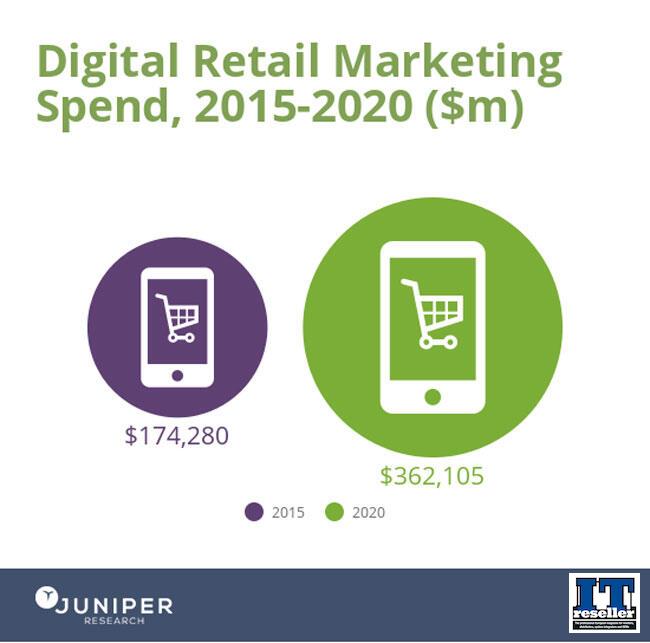A new study from Juniper Research has found that spend on digital retail marketing is set to increase from US$174 billion in 2015, to $362.1 billion by 2020.
The study, 'Digital Retail Marketing: Coupons, Advertising & Consumer Engagement 2016-2020', found that whilst the digital retail marketing industry will continue to be dominated by advertising revenues, coupon contributions will see strong growth, driven in part by the rise of Bluetooth beacons.

Bluetooth Beacons Drive Coupon Redemption Levels
Beacons, which find the location of a smart device using BLE (Bluetooth Low Energy, or Bluetooth Smart) signals, use transmitters to push pertinent content and information to devices which have their Bluetooth enabled. Several leading US retailers have now deployed beacon networks, with Macy's having installed more than 4,000 in its stores.
Significant opportunity exists: Juniper forecasts that almost 1.6 billion coupons will be delivered annually to consumers via beacon technology by 2020. This is up from just 11 million this year, as retailers seek to develop proximity marketing campaigns in and around their stores.
Research author Lauren Foye added: "Beacons are set to provide a boost to retailers, as we see major players promote instore offers and deals though mobile devices, targeting consumers whilst they are shopping. Coupled with loyalty schemes and rewards, retailers have clear potential to monetise those setting foot in their stores, aiding in promoting more traditional bricks and mortar retail."
Juniper also believes that there is significant potential for 'out of home' proximity advertising, with beacons starting to be rolled-out on buses, tubes and taxis, targeting locations which see high footfall.
From Personalisation to Hyperpersonalisation
Successful brands will be those who capitalise on the wealth of data available on consumer habits and interests, leading to the implementation of targeted advertising.
However, taking this one step further, Juniper observes a shift to hyperpersonalisation: where companies effectively create bespoke, individualised engagement across all brand offers, thereby reinforcing the scale of customer loyalty. A number of retailers already utilise this method; Netflix, for example, stated that recommendations made via hyperpersonalisation data accounted for 60% of its rentals in 2014.
Other Key Findings Include:
- Over 80% of all coupons issued will be on mobile devices by 2020, as opposed to under 20% on PCs & laptops.
- The impact of ad blocking technologies will see the equivalent of almost 10% of global digital advertising revenues lost by 2020.

Add a Comment
No messages on this article yet